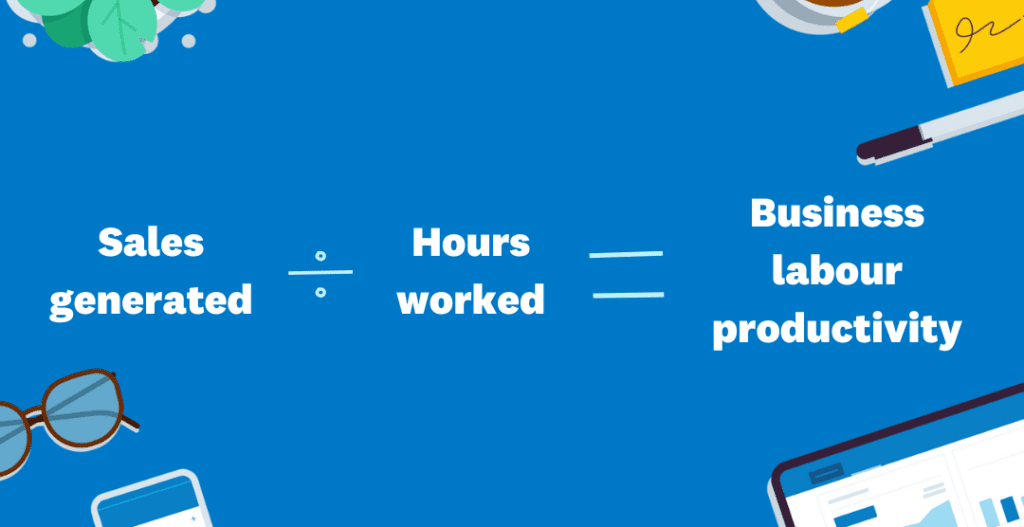How does productivity in your industry or region stack-up?
Earlier this year, we shared that we’d be releasing the second part of our Xero Small Business Insights (XSBI) productivity report series. Our latest report, Small business productivity: industry and regional trends, builds on the first report released in April. It takes a deep deep dive into labour productivity at the industry and regional level across Australia, New Zealand, and the UK.
This more granular data provides greater detail for small businesses and their advisors to understand how their own business (or their clients) stacks up against those in similar industries and regions, and assess if there are any opportunities to increase productivity levels.
What is labour productivity?
Productivity is the ratio of the volume of output to the volume of inputs. Labour productivity measures the output of workers, in terms of what they can produce in an hour of work or per employee.
Which industries and regions are the most productive?
Wondering how your industry’s productivity compares to others? Are the clients you serve more or less productive than those in neighbouring regions? The report provides 2023 rankings for the industries and regions of the UK, Australia and New Zealand.
United Kingdom
- National productivity in 2023 averaged £39.50/hour
- The most productive industry was construction (£54.30/hour) and the least productive was education and training (£19.00/hour)
- The most productive region was London (£47.90/hour) and the least productive was the North East (£31.20/hour)
Australia
- National productivity in 2023 averaged A$100.30/hour
- The most productive industry was wholesale trade (A$214.50/hour) and the least productive was hospitality (A$40.20/hour)
- The most productive region was Western Australia (A$102.50/hour) and the least productive was Tasmania (A$89.00/hour)
New Zealand
- National productivity in 2023 averaged NZ$102.40/hour
- The most productive industry was real estate services (NZ$125.20/hour) and the least productive was hospitality (NZ$14.30/hour)
- The most productive regions were Auckland and Northland (NZ$107.60/hour) and the least productive was Manawatu-Whanganui (NZ$87.50/hour)
How does your business stack up?
If you want to understand how your business stacks up against other businesses in your region or industry, then you can work with your accountant or bookkeeper to calculate your businesses labour productivity:
- Simply take your sales generated and divide it by the number of hours worked by your staff in the same time period
- Then, to accurately compare your productivity to the data in the XSBI report findings, you need to divide your results by the 2015 CPI. This is so that it is on the same basis as the XSBI data. For 2023 you’ll need to:
- Divide by 1.3 for the UK and New Zealand
- Divide by 1.2 for Australia

Once you understand where you sit relative to your regional and industry peers, you can work with your advisor to understand what productivity boosting opportunities might be available in your business.
What next?
To help understand how to lift productivity in your businesses, we’ve put together a handy guide: Increasing productivity in small businesses. The steps you (or your clients) can take fall into four broad areas:
- Find tools that amplify your work and invest in them. You could start this by simply finding out which Xero App Store apps might be useful to add to your stack and help you run your business better
- Reevaluate your current processes: are they really working?
- Set your workers up for success through upskilling and training
- Harness your entrepreneurial skills to build a business that operates at its full potential
If you’re interested in finding out more about how small businesses are performing, visit Xero Small Business Insights for more regular data and analysis.
The post How does productivity in your industry or region stack-up? appeared first on Xero Blog.
Source: Xero Blog






